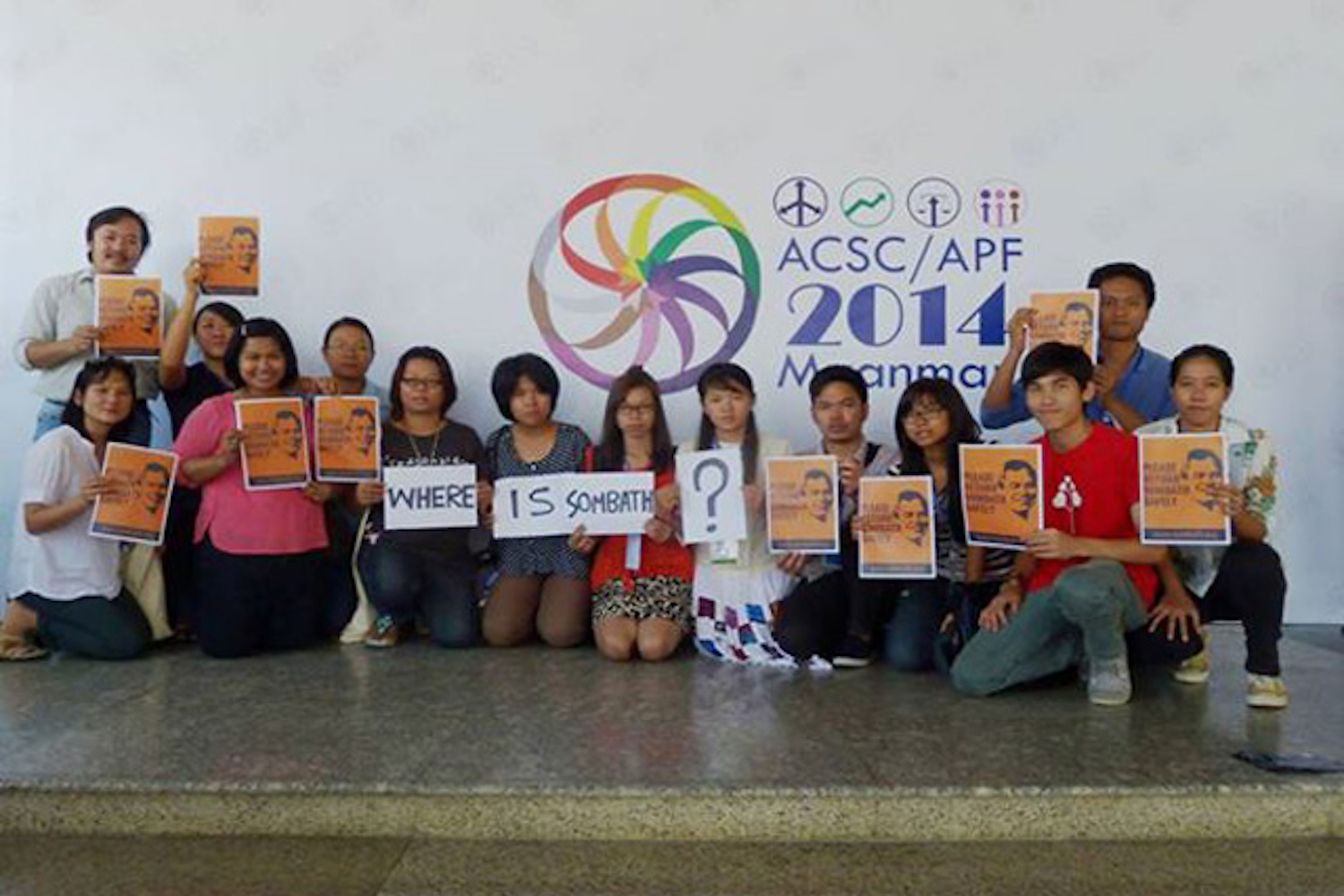
Date: December 17, 2019
Time: 10:30 am
Place: Foreign Correspondents Club of Thailand (FCCT, directions at www.fccthai.com)
Note: English-Thai interpretation will be provided
- Angkhana Neelapaijit: Director, Justice for Peace Foundation; Magsaysay Prize Award winner 2019, and wife of Somchai Neelapaijit who was enforcibly disappeared in 2004
- Ng Shui Meng: Wife of Sombath Somphone, who was enforcibly disappeared in 2012
- Katia Chirizzi: Deputy Director, Office of the UN High Commissioner on Human Rights, Southeast Asia
- Phil Robertson: Deputy Asia Director, Human Rights Watch
- Moderator: Shalmali Guttal
On December 15, 2012, Sombath Somphone became the victim of enforced disappearance at a police checkpoint in downtown Vientiane as he was heading home for dinner with his wife. His disappearance is emblematic of a crisis of enforced disappearances in Laos and Thailand that has affected human rights lawyers, community rights defenders, political activists, radio broadcasters, migrant worker leaders, and others across these two countries. The one constant has been impunity of officials involved, reflecting a lack of accountability for rights violations, and failures to conform national law with international law standards.
For Sombath, seven years after his disappearance , there are no new leads in the case. The Lao government continues to stonewall international concerns for Sombath Somphone, and authorities refuse to conduct a serious and impartial investigation.
In Thailand, enforced disappearances continue to happen, amid increasing suspicion of cooperation between neighboring governments to disappear or forcibly repatriate dissidents. On August 26, 2019, Od Sayavong, a Lao refugee living in Bangkok, and a visible critic of human rights abuses and corruption in Laos, went missing. Concerns regarding Od’s case were expressed in a joint statement that the UN Working Group on Enforced or Involuntary Disappearances and three Special Rapporteurs issued on October 1 2019. Between June 2016 and December 2018, Ittiphon Sukpaen, Wuthipong Kachathamakul, Surachai Danwattananusorn, Chatcharn Buppawan and Kraidej Luelert, critics of Thailand’s military government living in exile in Laos, disappeared. The bodies of Chatcharn and Kraidej were found about two weeks later on the Thai side of the Mekong River, mutilated and stuffed with concrete, while a third body – possibly Surachai’s – reportedly surfaced nearby and then disappeared.
In Southeast Asia, enforced disappearances are on the rise, ripping people away from their families, friends and communities in the most heartless way, and leaving unresolved questions and doubts that plague the missing person’s loved ones for years. In rare cases, as of Karen rights and land activist Porlajee “Billy” Rakchongcharoen who disappeared in April 2014, remains have been found and arrest warrants against alleged perpetrators of his enforced disappearance have been issued.
Families of those who have disappeared, have transformed grief, fear and anger into principled struggles for justice for all victims of human rights violations. In 2019, Khun Angkhana Neelapaijit, who suffered the enforced disappearance of her husband Somchai Neelapaijit in 2004, was honoured with the Ramon Magsaysay award for being a champion of human rights in Thailand.
Please join us for a discussion about the continuing crime of enforced disappearance and how different sectors of society are joining forces to end this crime in Southeast Asia.
For more information, please contact: Soontaree Nakaviroj; [email protected]
Event sponsored by FIDH (International Federation for Human Rights), Focus on the Global South, Human Rights Watch and Justice for Peace Foundation.

